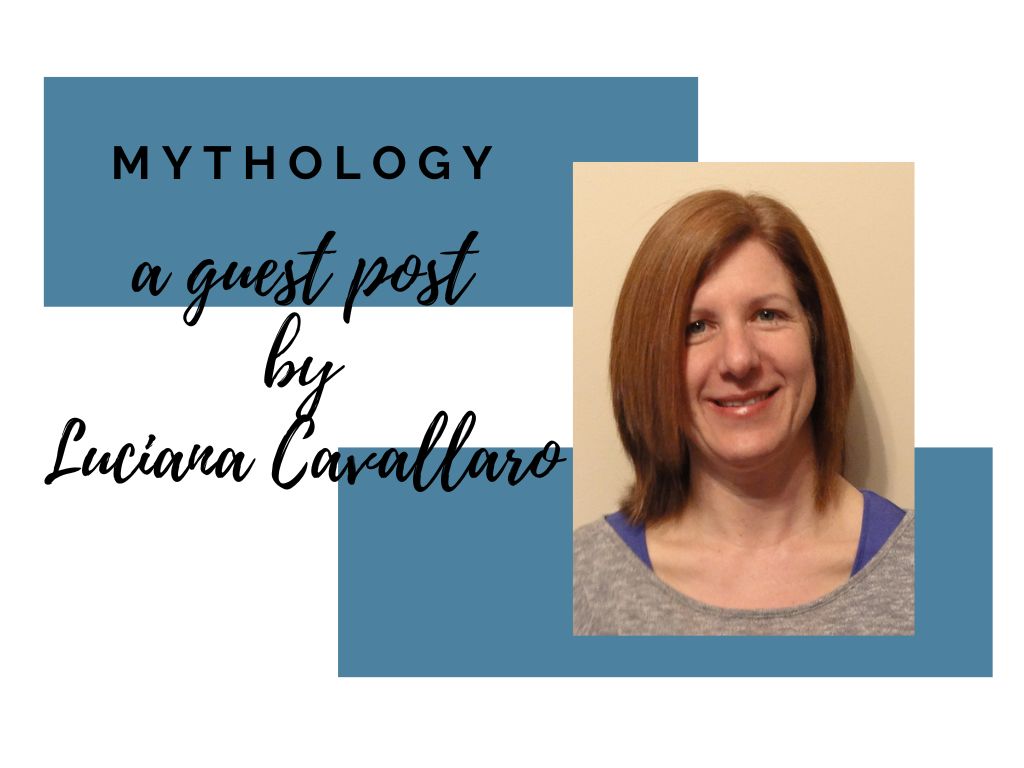Today, writer friend Luciana Cavallaro stops by the blog. We haven’t met in person – not that I wouldn’t love to travel to Australia and hang out with Luciana – but we have collaborated on historical fiction and fantasy promotions going back to at least 2015. As writers, we compare notes on what works/what doesn’t work on social media, we celebrate successes, and commiserate on the highs and lows of writing and publishing. If you enjoy historical fantasy and thrillers, do check out her work! Now…. over to you, Luciana!
Firstly, I’d like to say thank you to Char for inviting me to be a guest blogger on her website. It is a great honour and I hope you enjoy my post. I’ve been a student of mythology, especially Greek myths, for a long time and am by no means an expert mythologist. I was a teenager when I read my first myth about the Greek gods, which was followed by the mystery and myth of Atlantis. It certainly whetted my appetite for more and has inspired my writing.
Char: check out this action-packed adventure…

So back to the title of this post: ‘Mythology, are the stories still valid today?’ In short, yes. Before I explain why, let’s address what is mythology. Here’s a definition:
Mythology is a body of myths, especially one associated with a particular culture, person, etc.
Collins Concise Dictionary, 1989
I prefer Joseph Campbell’s explanation:
There is a mythology that relates you to your nature and to the natural world, of which you’re a part. And there is the mythology that is strictly sociological, linking you to a particular society.
Interview with Bill Moyers, The Power of Myth, 1986
Joseph Campbell explained how ‘mythos’ played an important part in all cultures, Western and Eastern, the lessons people learned and the knowledge gained. These are still valid today. Yes, they may seem dated to our way of thinking but if you deconstruct the stories, one can link them to our daily lives.
In ancient societies where writing had not been invented, people found a way to illustrate life in its many forms. They needed a way to make people understand what was happening not only in the natural world but also the actions of individuals. For example, the mythology of Herakles (Greek) or Hercules (Roman), a hero and Zeus’ son, had killed his wife and children. To atone for his behaviour, he was told to complete twelve labours. He didn’t realise he had slaughtered his family. Hera, the wife of Zeus, who was angry her husband’s infidelity and many offspring, and in particular abhorred Herakles, made him temporarily insane. The aim of the story was to show the consequences of behaviour and acts of retribution.
Ancient civilisations also used mythology to explain natural disasters and anything they didn’t understand. In Greek Mythology, Poseidon was the cause of earthquakes. He would strike his trident at the Earth and disaster followed. In Norse Mythology, Loki caused earthquakes. He was punished for killing Baldr, bound in a cave with a serpent place above his head dripping venom. It was his thrashings from the toxins that caused the earthquakes. Despite differences in cultures, some mythologies had similar tales: the Sumerian epic poem Gilgamesh, which chronicles the great flood are also found in the Greek myth called the Age of Deucalion. In fact, there is a great site which has compiled flood stories and their origins. http://www.talkorigins.org/faqs/flood-myths.html
These myths have given us a window into the way the ancients lived and how they understood the world around them. Today, we have the gift of education, scientists who investigate and describe their findings, books to read and learn from, access to the internet and technology. We have the power of knowledge, yet archaeologists go out every day to explore and discover past civilisations. Why? I believe, and this is just what I think, these amazing ancient cultures understood the precarious balance of nature and nurture, and were more in tune with their surroundings than we are.
I love mythology, the richness and diversity of the stories created tell of times past but also show a way forward. When I talked about mythology to my students, I’d tell them the stories were a set of rules and guidelines for how people should live and to respect the power of our planet. It seems we need these oral traditions more than ever.
To echo a question Bill Moyers put to Joseph Campbell, ‘What is our mythology?’
I would love to know your thoughts about mythology.

More about Luciana Cavallaro
- Award-winning author of The Labyrinthine Journey and The Guardian’s Legacy
- Nominated for book awards in the Action/Adventure, Thriller/Suspense and Historical Fiction genres
- Drove her first car at the age of three
Luciana Cavallaro’s alter ego is a high school teacher where she plugs away educating teenagers the merits of reading and ancient history. She often looks for a brick wall to bang her head when faced with disinterested looks from her students. She’s also a historical fantasy and thriller/suspense author, who creates fast-paced, action-packed series for her readers.
Born and raised in Western Australia, residing in Perth, Luciana loves to travel and since getting her passport at the ripe old age of twenty-four has toured parts of Europe, a legacy of her Italian heritage. She enjoys being active, going out with friends, reading and tries to grow her own vegetables. She dreams of travelling again and visiting the ancient sites that inspired her stories, that is when she’s not spending time being an unofficial stunt person and knocking herself out in the process. Visit her website at www.lucianacavallaro.me
Where to connect:
Subscribe to newsletter https://www.subscribepage.com/softgs
BookBub https://www.bookbub.com/authors/luciana-cavallaro
Goodreads http://www.goodreads.com/author/show/6567841.Luciana_Cavallaro
FaceBook https://www.facebook.com/pages/Luciana-Cavallaro-Writer/304218202959903?ref=hl
Instagram https://www.instagram.com/authorluciana/
Twitter https://twitter.com/ClucianaLuciana
YouTube https://www.youtube.com/watch?v=vTZVsoFkZPo
LinkedIn http://www.linkedin.com/profile/view?id=242021145&trk=nav_responsive_tab_profile_pic


Leave a Reply